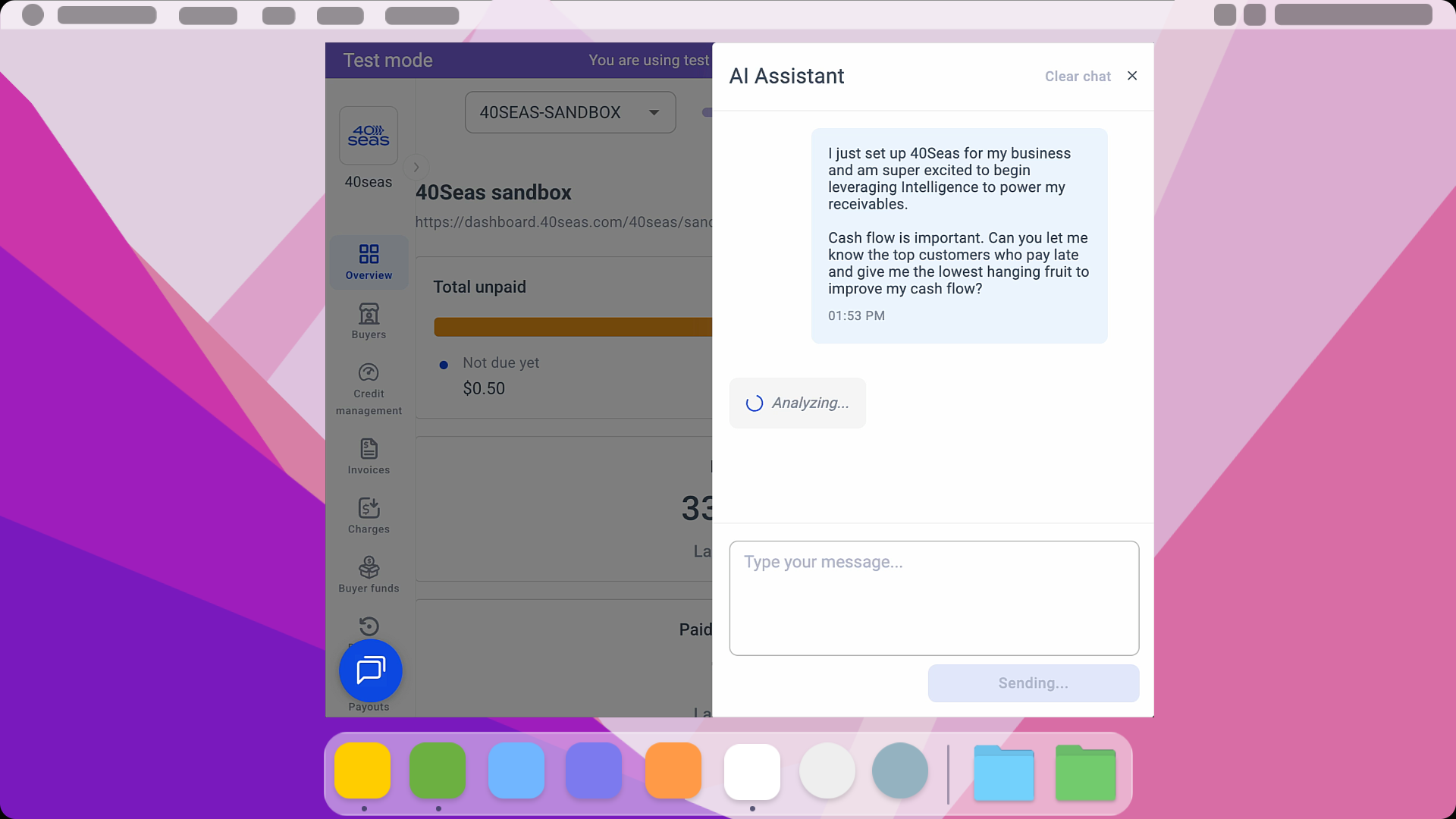For businesses across the industry spectrum, a robust sustainability agenda is no longer a ‘nice to have’, it has swiftly become a non-negotiable necessity and a core tenet of growth strategies. More and more industries are embracing their environmental and social responsibilities, and the global supply chain is a central component of this transformation. Among a litany of tech-led innovations, Artificial Intelligence (AI) is rapidly emerging as a powerful tool in the sustainability mission, with growing recognition at board level around how targeted deployments of AI can optimize processes, reduce waste, and minimize environmental impact of operations – contributing to a more sustainable supply chain. In a previous blog we outlined how AI can be leveraged to scalably verify creditworthiness and offer flexible payment options that effectively increase the availability of working capital for SME importers, exporters, freight forwarders and sourcing agencies. Today we’ll be examining AI use cases purely through the lens of sustainability.
Predictive Analytics for Efficient Resource Allocation
AI-driven algorithms are providing tremendous value when it comes to analyzing historical demand patterns and market trends to forecast future demand for products. These algorithms employ statistical models, Machine Learning (ML) techniques, and predictive analytics to extrapolate future demand scenarios, factoring in variables like seasonality, economic indicators, and consumer behavior. This results in more precise demand forecasts that assist businesses in optimizing inventory, production, and distribution strategies to meet market demand in a more streamlined fashion, while allocating resources more efficiently, reducing overproduction and waste. For example, AI can help retailers avoid overstocking inventory, preventing unsold goods from ending up in landfills. By fine-tuning inventory levels, companies can also minimize the need for rush shipping, which is both costly and environmentally damaging due to increased emissions.
Optimized Route Planning and Smart Truck Platooning
Data is the lynchpin of the global supply chain, driving efficiency, visibility, and informed decision-making. The quality and accessibility of data can make a huge difference in terms of route planning, and AI-powered route optimization tools represent a game-changer for supply chain logistics. AI-powered algorithms consider multiple variables, such as traffic, weather, and delivery schedules to determine the most efficient routes for transportation. Autonomous delivery vehicles, guided by AI, can also make deliveries faster, reducing the number of trips needed to serve a given area, substantially cutting down on fuel consumption and emissions. The United Nations has previously highlighted the positive impact Autonomous Vehicles and smart truck platooning can have on global sustainability initiatives. Essentially, smart truck platooning is a form of automated carpooling for large trucks, in which a human-driven truck leads, and autonomous trucks follow closely, maintaining a safe distance between each other while benefiting from the slipstream effect. The ‘Fuel Economy in Truck Platooning’ report highlighted how a gap of 4.7m between vehicles can lower energy consumption by up to 18%, giving expression to the tangible efficiency gains associated with more strategic truck platooning.
Energy Efficiency in Manufacturing and Risk Mitigation
In addition to helping trucks conserve energy through smart platooning, AI plays a pivotal role in optimizing energy usage within manufacturing facilities. Smart sensors and AI algorithms can monitor energy consumption in real-time and make necessary adjustments to reduce waste. For instance, AI can regulate machine operations to minimize energy usage during periods of lower demand or automatically shut down equipment when it’s not in use. By implementing AI-driven energy management systems, manufacturers can significantly reduce their carbon footprint and energy costs, making the production process more sustainable. Moreover, AI's ability to process vast amounts of data in real-time makes it a valuable tool for risk mitigation in the supply chain – helping to identify potential disruptions stemming from natural disasters, political instability, or labor strikes, and provide recommendations to mitigate their impact.
In sum, targeted implementations of AI can punctuate the supply chain sector’s path to Net Zero. By leveraging predictive analytics, optimizing route planning, improving energy efficiency and reducing waste, AI can be the silver bullet solution that helps businesses confront their environmental targets with a new sense of confidence and conviction.











.svg)